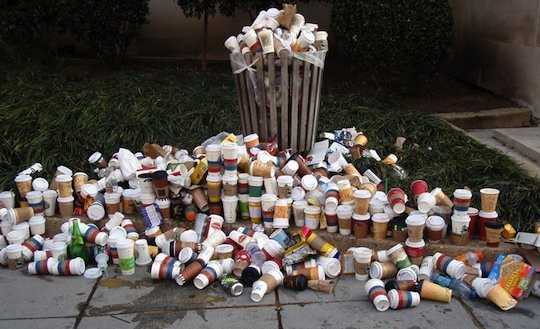LONDON, UK – INCPEN (The Industry Council for Research on Packaging and the Environment) has defended the use of coffee cups and plastic bottles in a report to the Environmental Audit Committee.
The packaging research body submitted evidence to the parliamentary inquiry into the effects on the environment of disposable drinks packaging.
The key points in the submission were:
- Used packaging is five million tonnes, of which cups are 0.5% and soft drinks bottles and cans 14% – and food waste dwarfs packaging at 7.3 million tonnes.
- The most recent scientific litter survey suggests that charges do not influence littering rates, and with no charge, the number of littered plastics drinks containers and coffee cups went down.
- Unlike a bag charge which is avoidable if a consumer takes their own bag – everyone who wants a drink would have to pay a tax.
- Most countries that operate deposit systems have done so for many years and do not have nationwide kerbside recycling.
- Deposit systems do not increase overall recycling rates – pointing out that when Germany introduced deposits in 2003 the recycling rate fell and did not get back to the same rate for 10 years.
The submission questioned the effectiveness of Deposit Return Systems, and pointed out that the UK has increased its recycling rates in the last 20 years, with a fall in current recycling rates that it blamed on a decline in green waste, not paper and packaging.
“We welcome this inquiry and hope it will cast some clear light on the reasons why plastic bottles and coffee cups exist and both the positive and negative impact they have,” said INCPEN director Jane Bickerstaffe.
“What is essential is that these bottles and cups are considered as part of the wider question of preventing littering. We do not believe that focusing on individual items will have the desired effect.”


















